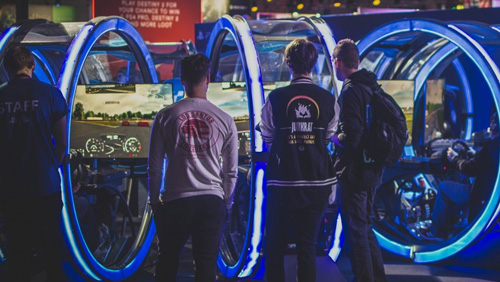As one of the exciting, emerging products of the gambling world, esports has been observed with some skepticism. While some view it as a potential new source of revenue from younger, millennial punters, others are worried that without the infrastructure of other major sports, it’s prone to corruption like cheating and match fixing.
 The Esports Observer recently spoke with several experts about how these fears and being dealt with by the growing industry. This investigation was spurred on by news of cheating in League of Legends competitive play, resulting in bans being handed out for a Chinese team.
The Esports Observer recently spoke with several experts about how these fears and being dealt with by the growing industry. This investigation was spurred on by news of cheating in League of Legends competitive play, resulting in bans being handed out for a Chinese team.
Cheating being the main reason for the discussion, it attracted a lot of discussion. Marcel Menge, Senior Vice President of Play & Platforms at the ESL, said that diligence and expertise are the deciding factors in catching cheating. He explained:
“Having multiple spectators backstage as well, plus having the POV streams online for each player position, there are enough eyes on all situations to make sure that if something is fishy, it can be instantly reviewed and checked.”
He also pointed to anti-cheat software, like Valve’ Anti-Cheat System, help prevent the issue entirely for some games, raising the integrity of play. The ESL also dedicates up to 25% of its budget to anti-cheat measures aimed for top-level play.
The Esports Integrity Coalition (ESIC) also has a large role to play, specifically in monitoring betting fraud. The organization helps esports leagues around the world to identify threats, create codes of conduct, and provide a uniform disciplinary procedure for offenders that are caught. Ian Smith, Integrity Commissioner for ESIC, cautions that many organizations not working with the group are not up to par:
“I’m not going to name those guys, they know who they are. They are hopelessly unprepared for a crisis of this nature, both in terms of what rules they have in place, what education they give their participants, and what procedures they’d adopt if there was an incident.”
ESIC typically looks into one accusation per month, and Menge notes that audiences are well educated enough that broadcast esports matches help the community catch offenders pretty easily.
Comparing that kind of transparency and visibility to other sports offerings, esports comes off in a pretty good light. If CS:GO players can be caught for using hacks and audiences can quickly identify fishy elements in play, that’s a much better system of protection than whatever was in place to stop deflated balls, corked bats or steroids.
It might be a young sport, but with protection from both the ESL and ESIC, esports is already light years ahead of where the competition was when it started.





